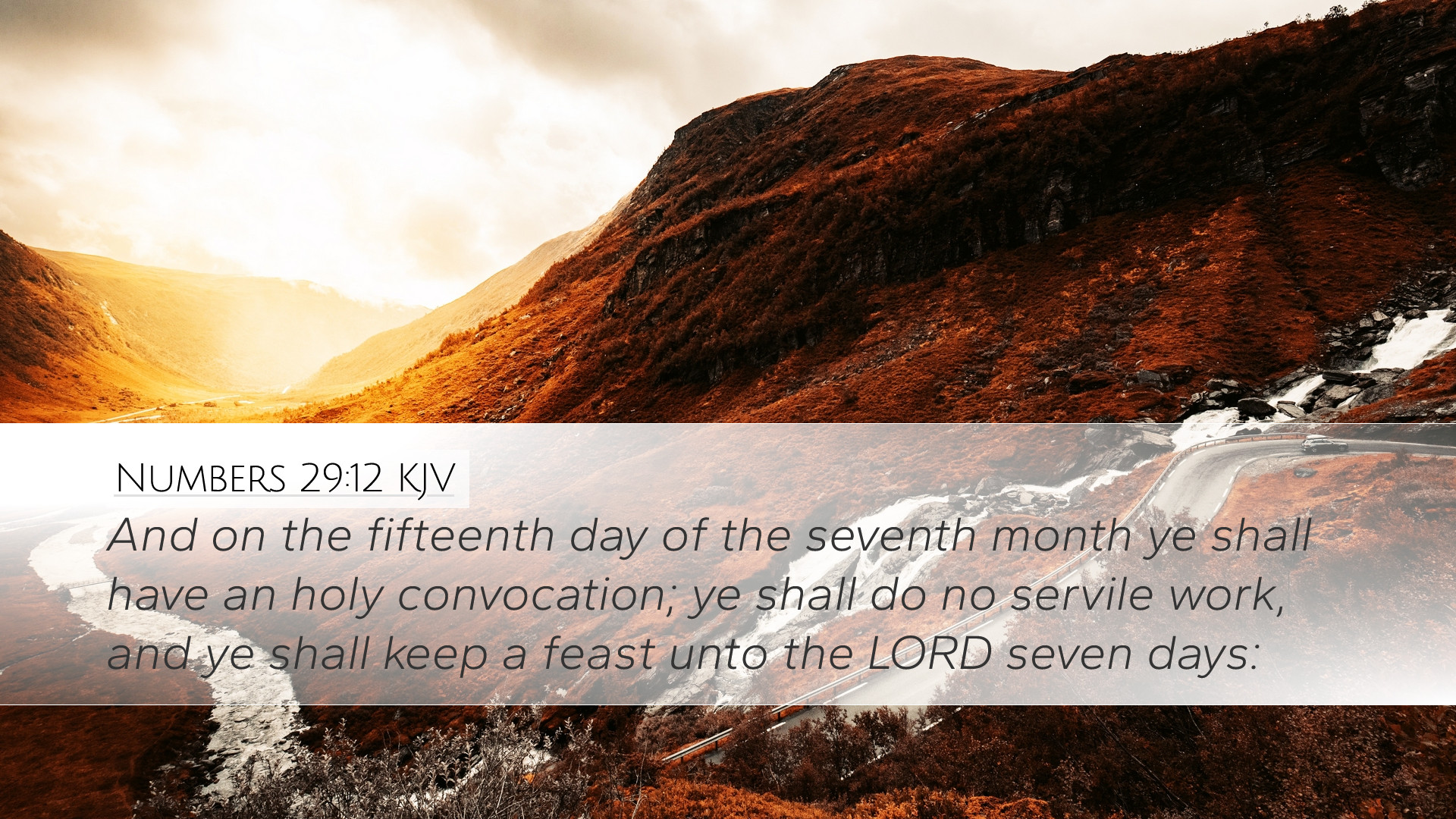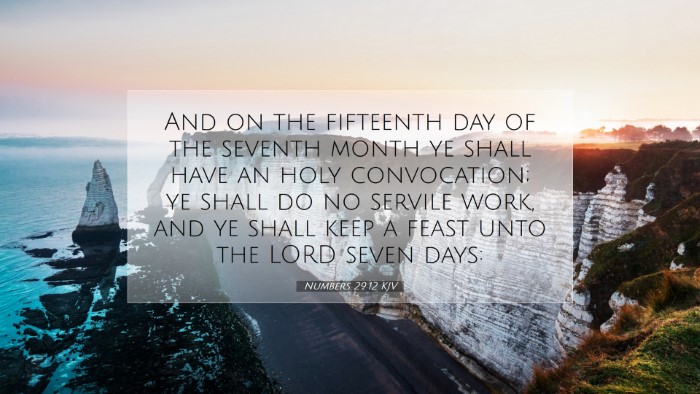Commentary on Numbers 29:12
Numbers 29:12 states, "And on the fifteenth day of the seventh month ye shall have an holy convocation; ye shall do no servile work; and ye shall keep a feast unto the LORD seven days." This verse outlines God's command for the observance of the Feast of Tabernacles, one of the key festivals in the Hebrew calendar. This commentary draws from the insights of respected theologians and biblical scholars, consolidating their thoughts to shed light on the significance of this text.
Context and Historical Background
The Feast of Tabernacles, also known as Sukkot, is celebrated in the Hebrew month of Tishrei, which usually falls in September or October. This festival commemorates the Israelites’ wandering in the desert and their reliance on God for sustenance and protection. The command given in this verse reflects God's desire for His people to remember His provision and to rejoice in His presence.
Theological Significance
Matthew Henry emphasizes that the Feast of Tabernacles is a time of joy and thanksgiving. It serves to remind the people of Israel not only of their physical deliverance from Egypt but also of their spiritual journey into the Promised Land. This festival points to the ultimate dependence on God, who sustains His people through all circumstances.
Observance of the Feast
-
Holy Convocation:
According to Albert Barnes, the term "holy convocation" denotes a sacred assembly, which marked the beginning of the festival. This was a time for collective worship and reflection, illustrating the communal aspect of faith in Judaism.
-
Rest from Work:
Both Barnes and Henry note the prohibition of “servile work” during this period, highlighting the importance of setting apart time for spiritual activities rather than daily labor. This serves as a reminder for believers to prioritize their relationship with God over secular pursuits.
Duration of the Feast
Numbers 29:12 indicates that the Feast of Tabernacles lasts for seven days. Adam Clarke remarks that seven in biblical numerology signifies completeness and perfection. Therefore, the seven-day duration signifies the fullness of the joy and thanksgiving the Israelites ought to express toward God for His blessings.
Spiritual Application
This verse has profound implications for contemporary believers. As modern-day followers of Christ, the principles underlying the Feast of Tabernacles can be applied in several ways:
-
Remembrance:
Just as the Israelites were to remember God's provision, Christians are called to reflect on the grace and mercy extended through Jesus Christ. Communion and fellowship should be regularly observed as a means of remembering His sacrifice and sustaining grace.
-
Joy and Thanksgiving:
The joy of the Feast of Tabernacles can inspire believers to celebrate God's faithfulness in their lives. Times of praise and thanksgiving should be evident in the church’s life, mirroring the celebratory nature of this feast.
-
Community Gathering:
The concept of a “holy convocation” is crucial for understanding the importance of church fellowship. Believers are encouraged to gather regularly for worship, teaching, and accountability, reflecting the communal aspect of the faith.
-
Setting Aside Work:
As the Israelites were commanded to refrain from work, modern believers are challenged to prioritize their relationship with God, ensuring that rest and spiritual renewal are key parts of their lives.
Conclusion
In conclusion, Numbers 29:12 encapsulates significant practices and principles relevant to both ancient Israel and present-day believers. The feast it describes is not merely an event but a poignant reminder of God's faithfulness and provision. As pastors, students, theologians, and scholars examine this verse, they are encouraged to delve into the rich history and spiritual applications it holds, fostering a deeper understanding of their faith.


